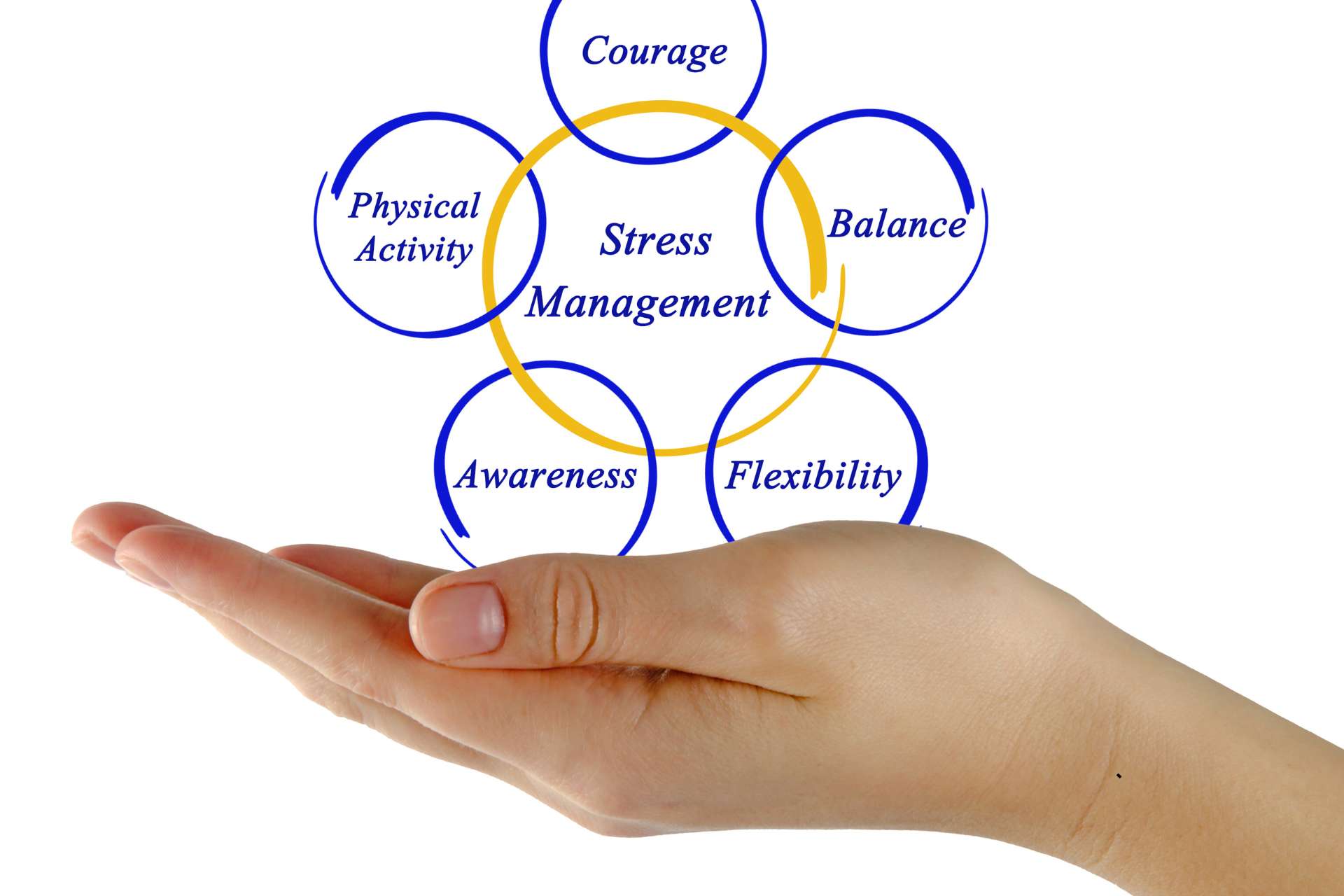In today’s modern society, the demands of daily life seem to grow more intense by the minute. With endless emails, tight deadlines, social media overload, and the constant juggling of work, home, and social commitments, stress has become a constant companion for many. While some level of stress can motivate us to perform well, chronic stress can be overwhelming and lead to serious health issues.
The good news is that stress management is possible, even in a fast-paced world. By making intentional changes in how we approach daily stressors, we can reduce their negative impact on our health and well-being. Below are some effective ways to manage stress in today’s fast-paced environment.
Recognize the Signs of Stress
The first step in managing stress is recognizing when it’s happening. Stress manifests in different ways—physically, mentally, and emotionally. Some common signs of stress include physical symptoms like increased heart rate, muscle tension, fatigue, and sleep disturbances, as well as emotional ones like irritability, anxiety, and feeling overwhelmed. Behaviorally, stress can lead to overeating, procrastination, or withdrawing from social activities.
When we’re aware of these signs, we can take action early before stress becomes chronic. Being in tune with our bodies and minds helps us respond to stress proactively rather than reactively.
Build Healthy Habits
Managing stress begins with cultivating healthy habits that support overall well-being. These habits should be integrated into your daily routine to ensure your body and mind are equipped to handle stress effectively.
Exercise is one of the most effective ways to reduce stress. Regular physical activity releases endorphins, chemicals in the brain that act as natural mood boosters. Whether it’s a brisk walk, a yoga session, or a more intense workout, movement can help you feel calmer and more energized.
Quality sleep is essential for stress management. Lack of sleep increases vulnerability to stress, making it harder to think clearly or manage emotions. Aim for 7-9 hours of sleep each night, and try to stick to a consistent sleep schedule.
What you eat also plays a crucial role in how well your body manages stress. A balanced diet rich in fruits, vegetables, whole grains, and lean proteins provides the nutrients needed to regulate stress hormones. Avoid excessive caffeine, alcohol, and sugar, which can trigger mood swings and stress.
Relaxation practices such as deep breathing or progressive muscle relaxation can be incredibly beneficial in reducing stress. Set aside time in your day for activities that help you unwind, like reading, journaling, taking a bath, or enjoying a hobby.
Practice Mindfulness
Mindfulness involves staying present in the moment, without judgment. It encourages a non-reactive awareness of your thoughts, feelings, and surroundings. Mindfulness can help you detach from stressful thoughts and emotions, making it easier to navigate challenges with a calm, clear mind.
Mindfulness can be practiced in several ways. One simple method is mindful breathing, where you focus on your breath, inhaling deeply for a count of four, holding for four, and exhaling for four. This helps calm your nervous system and promotes relaxation. You can also try mindful eating by paying attention to the texture, taste, and aroma of your food, slowing down to savor each bite. This practice helps reduce stress by encouraging present-moment awareness.
Another technique is mindful walking, where you take a walk and observe your surroundings—notice the colors, sounds, and sensations. This simple practice can be calming and grounding, especially when you’re feeling overwhelmed.
By practicing mindfulness, you can interrupt the cycle of stress and create a mental space where you can respond to situations calmly, rather than react impulsively.
Set Boundaries and Prioritize
In a world that demands constant availability, setting boundaries is key to managing stress. People-pleasing tendencies or overcommitting can quickly lead to burnout. Learning to say “no” when you’re stretched too thin is essential for protecting your time and energy.
Setting realistic goals is another effective way to prevent stress. Breaking tasks into manageable steps and avoiding overwhelming yourself with unrealistic expectations can help you stay organized. Tools like to-do lists or time-blocking can also help you maintain focus and reduce stress.
It’s also important to recognize your limits and delegate tasks when possible. At work or at home, don’t hesitate to trust others to help lighten your load. This allows you to focus on what matters most and reduces the pressure you feel.
Connect with Others
While stress is a natural part of life, isolating yourself can make it feel even more overwhelming. Social connections are vital for mental health and stress management. Having a support system of friends, family, or colleagues can provide emotional relief and help you manage challenges more effectively.
Sometimes, simply talking about your stress with someone you trust can provide immense relief. Whether it’s venting about your day or seeking advice, communication is a powerful tool for managing stress. Spending time with loved ones and engaging in meaningful social activities can also provide a sense of support and help you unwind.
Digital Detox
In today’s hyper-connected world, it’s easy to get overwhelmed by the constant barrage of emails, social media notifications, and news updates. Taking regular breaks from screens can help reduce digital overload and create space for relaxation.
Setting screen time limits can help you manage your digital consumption. Designate specific times for checking emails or scrolling through social media, and avoid excessive screen time outside of these hours. Unplugging from devices before bed is especially important to improve sleep quality, as the blue light emitted from screens can interfere with rest.
Engaging in offline activities like reading, walking, or spending time with loved ones can help recharge your mind and body and provide relief from the constant digital noise.
Seek Professional Help When Needed
If stress becomes overwhelming or chronic, it’s important to seek professional support. Therapists, counselors, and stress management coaches can help you develop personalized strategies for coping with stress. Don’t hesitate to reach out if you find yourself struggling to manage stress on your own.
Conclusion
Stress is a natural part of life, but it doesn’t have to take over. By recognizing the signs of stress, building healthy habits, practicing mindfulness, setting boundaries, and taking regular digital detoxes, you can manage stress effectively in today’s fast-paced world. Remember, stress management is not a one-size-fits-all approach—our clinicians can help you find the strategies that work best for you and make them a regular part of your routine. Complete our contact form today to get started.






